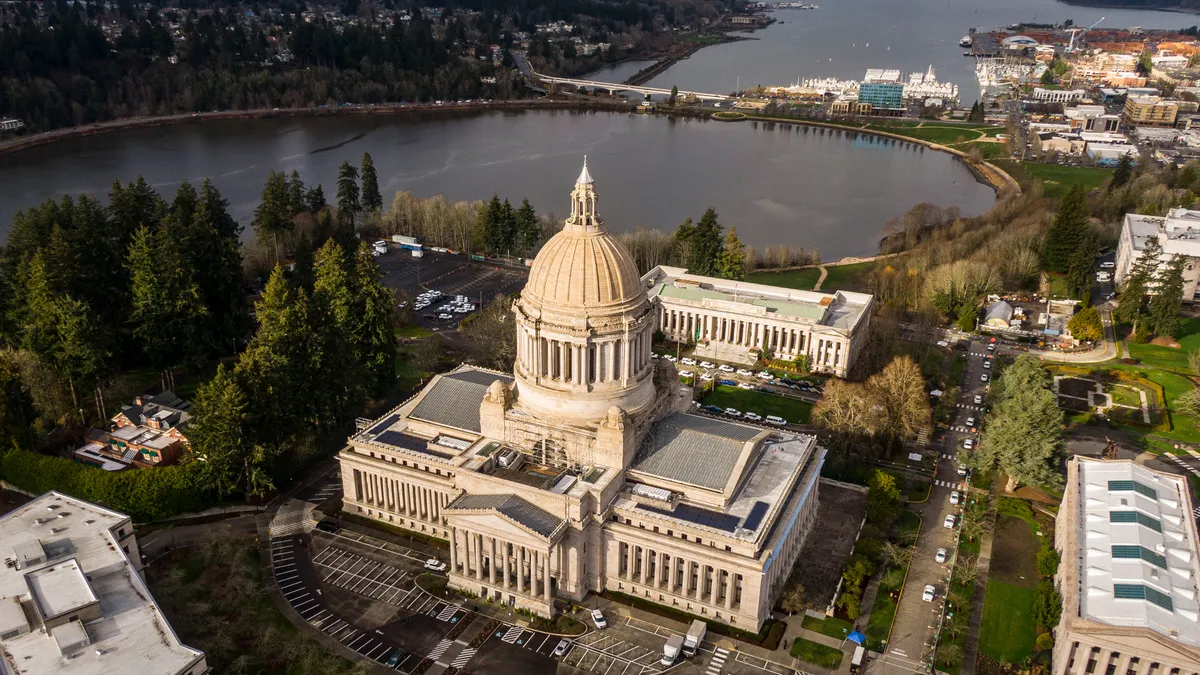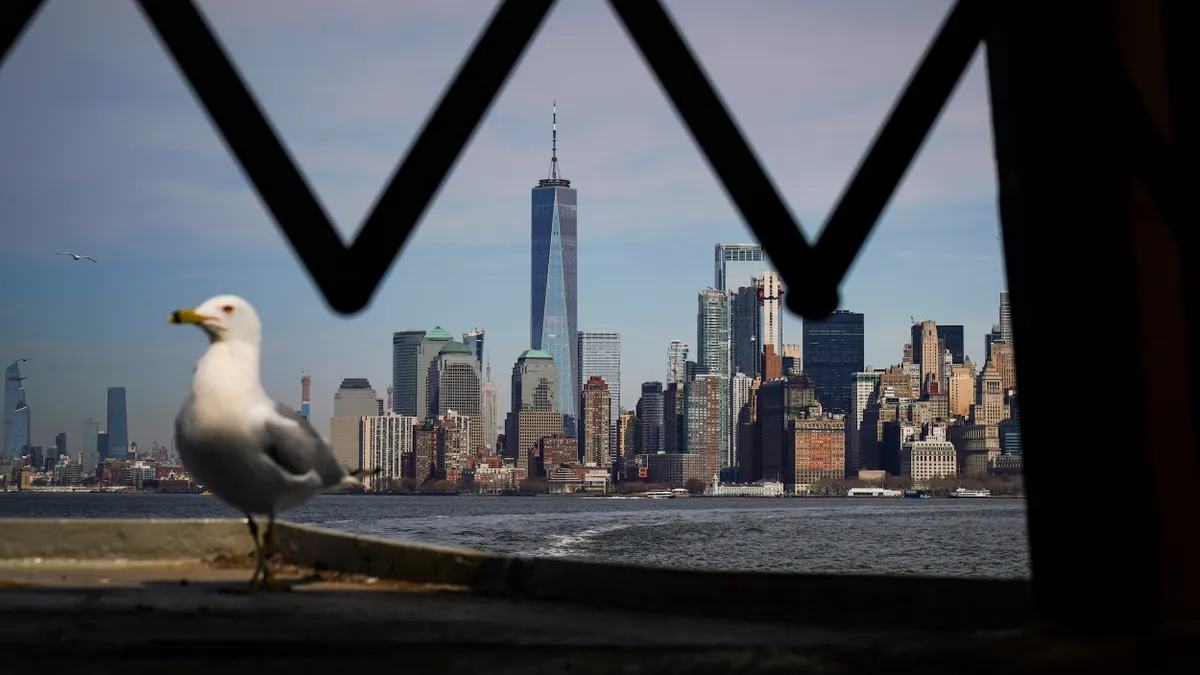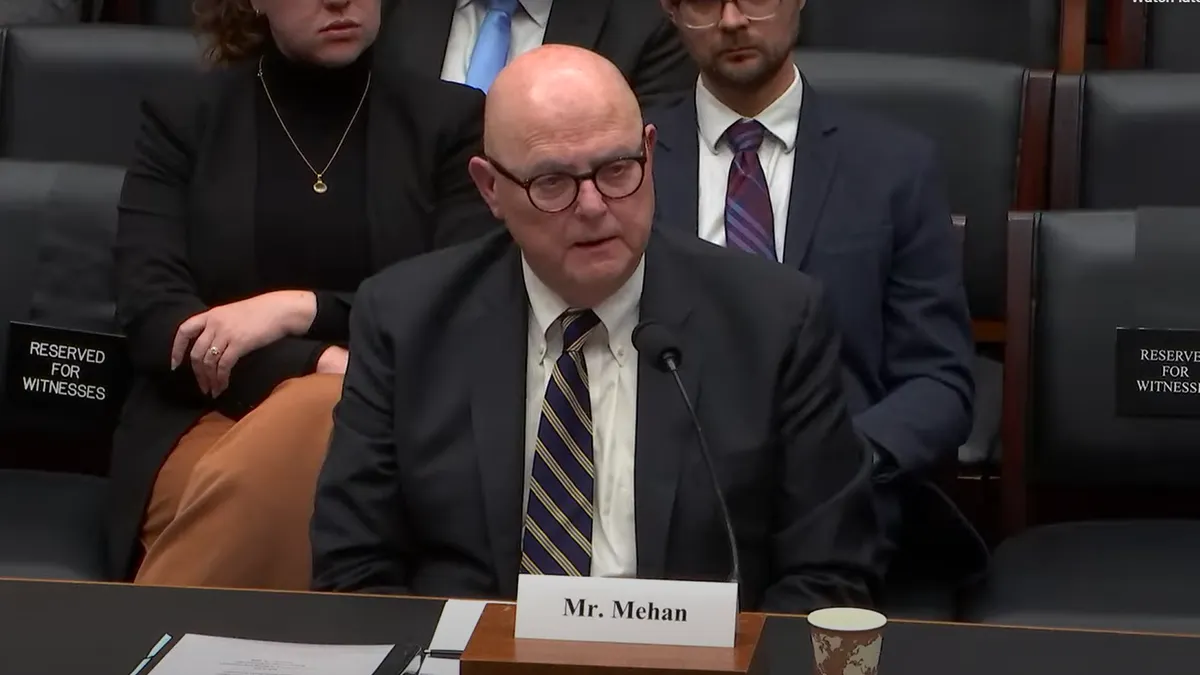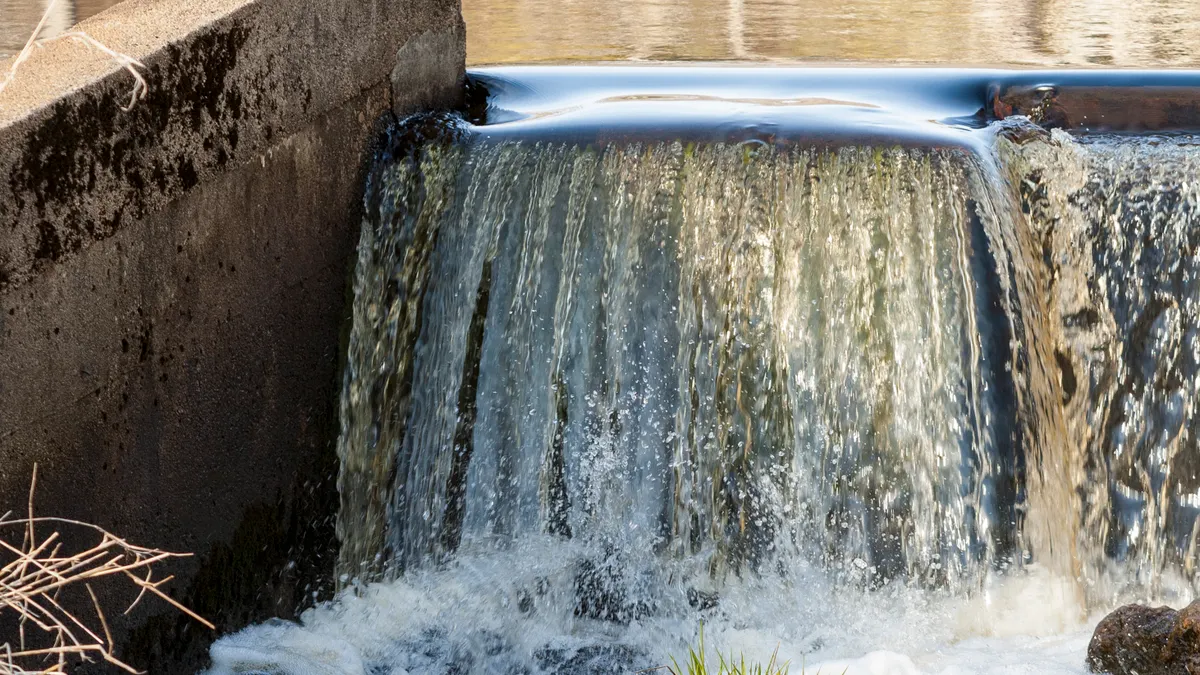UPDATE: March 25, 2022: Washington Gov. Jay Inslee signed HB 1799 on Friday. The law will set up one of the most comprehensive state policies for organics management in the U.S.
March 10: Washington could soon have one of the most comprehensive organics management policies in the U.S. with the final passage of a state bill (HB 1799) this week.
Pending Gov. Jay Inslee's signature, the bill would set a target to reduce organic waste disposal 75% by 2030 and increase the volume of edible food recovery 20% by 2025 — both relative to a 2015 baseline. The bill defines organic waste as manure, yard debris, food waste, food processing waste, wood waste, and garden waste.
Businesses with at least eight cubic yards of weekly organic waste would be required to have some form of on-site management or collection services in place by 2024, with that threshold dropping to cover generators of smaller volumes in 2025 and 2026. Starting in 2027, local governments would also have to offer source-separated organics collection service either biweekly or at least 26 weeks per year — with various exceptions, including for cities and counties of less than 25,000 people.
The bill would require certain local governments to adopt compost procurement requirements, expand funding to support farm usage of compost, require new local regulations to allow for the siting of organics processing facilities, establish first-in-the-nation label and color standards for compostable products, update liability standards for food donation and create a Washington Center for Sustainable Food Management.
"Washington is taking a big step forward in improving our management of organic materials, putting what used to be waste to productive use, and reducing methane emissions from landfills," said Rep. Joe Fitzgibbon of Seattle, the bill’s prime sponsor, in a statement.
New era of materials management
In 2019, Washington set a goal to reduce food waste 50% by 2030, similar to existing international and U.S. targets. The state's Department of Ecology then worked with other agencies to establish the Use Food Well Washington plan in late 2021. Nonprofit advocacy group Zero Waste Washington released its own report in May 2021 outlining numerous policy recommendations and was part of a stakeholder group that met many times since last summer to hash out next steps.
Zero Waste Washington Executive Director Heather Trim said the bill was a natural evolution after "a ton of focus on recycling at the state level" in recent years, in the wake of China's scrap import restrictions, which led to the passage of multiple recycling-related bills in 2019, 2020 and 2021. There had also been growing state attention to the climate change implications of transportation, building and energy policy, but organic waste and related landfill emissions hadn't risen to the top until now.
A separate bill focused on landfill emissions also passed this week, but an extended producer responsibility bill for packaging did not make it through this year's short legislative session. Getting the organics bill through in a tight time frame was considered a big lift, and some priorities didn't make it in, but the final bill has broad support.
Trim and others hope Washington can benefit from following the lead of existing state organics policies, which vary in their effectiveness and complexity. According to a policy tool from ReFED, only California and Vermont's organics policies are considered "strong," followed by "moderate" ratings for Massachusetts and Washington, D.C., with all others described as "weak" due to their more narrow applications. California's SB 1383 policy was a key inspiration for Washington, but its prolonged rulemaking period is something supporters aimed to avoid by including more specific language in the bill.
Seattle already has an organic waste disposal ban, along with robust commercial and residential organics collection programs, but a prior report by Zero Waste Washington found only 49% of all jurisdictions in the state had some form of organics recycling collection as of 2020. While yard waste collection is prevalent, only 31% of jurisdictions offered collection for food waste and 33% for food-soiled paper. Organics services were most common in the state's more populous Puget Sound and Northwest regions.
Moving forward, a key part of expanding collection service will be finding the right approach for a state that varies in population density and climate, as well as developing adequate processing infrastructure. Washington currently has multiple compost facilities, and some farm-based anaerobic digestion capacity, but it will need more to meet the expected volume increase.
The Washington Refuse & Recycling Association (WRRA) — which represents major area haulers and composters such as WM, Republic Services and Waste Connections — initially supported a more narrow bill, but it is supportive of this package.
“This will help drive demand, and demand will help drive capital. So it’ll be good for the private sector over time if we can convince our other partners that we need to put these facilities in," said WRRA Executive Director Brad Lovaas. "We like to collect things. [Where this requires] additional businesses and our residents to have a service, we’re happy to provide it."
Lovaas said haulers are supportive of moving to this "whole new paradigm," and the certainty of a mandate will help them plan for investments, but equipment and labor constraints will be a factor in scaling up collection. The potential impacts of shifting tonnage away from landfills and transfer stations that can generate tip fee revenue for local governments will also be a consideration. The bill acknowledges this latter concern, calling for the Department of Ecology to deliver a study on "the adequacy of local solid waste management funding" by July 2023.
WRRA does not support a late-stage amendment that is viewed as limiting the potential expansion of a facility run by Cedar Grove, an association member and one of the state's largest composters. State Sen. Mark Mullet, who backed the amendment, did not respond to a request for comment. Lovaas said WRRA is likely to advocate for a section veto by the governor.
Next steps
Figuring out more ways to support the expansion of organics processing capacity, while deferring to the preferences of host communities, is a key issue in Washington, as it is in many other states. This bill directs local jurisdictions to factor organics processing facilities into their future solid waste management plans, but it will be a complex process.
“These are really good, lofty goals for diversion. I think part of the challenge is that there isn’t enough capacity in the state to process everything that’s supposed to be diverted," said Janet Thoman, compliance director for the Compost Manufacturers Alliance, adding that more harmonization of local permitting standards is needed as the current system can be "kind of a labyrinth."
Troy Lautenbach, a partner at composter Skagit Soils, has experienced the challenges around permitting, which prompted the company to pivot to an aerated static pile system from windrows. He supports the bill and wants to see a more nuanced conversation around air quality metrics in the future.
“I’d love to see more stuff coming through our facility, and keeping stuff out of the landfill, but we do have a capacity issue," he said. “It’s just not easy to either do a permit expansion or do a whole new facility permit altogether."
Lautenbach and others note many of the underlying air-quality standards draw from older studies, often based on different conditions in California, and they hope to see those standards updated. Balancing the need to more expeditiously expand capacity, while also ensuring positive environmental quality and community relations, remains an ongoing discussion.
“We want new compost facilities and other facilities in Washington state to go in, but we don’t want them to go in places where there are conflicts with neighbors," said Trim, who also wants to see further assessment of the air-permitting process.
Lautenbach said expanding markets for finished compost is also important because "we’re not in the business of making great big piles and not having a home for it." Since 2020, state agencies and local governments have been "required to consider whether compost products can be used in government-funded projects," but that hasn't led to a major shift in the market yet. This new bill would require larger city and county governments to adopt ordinances for implementing those procurement requirements by 2023.
Unlike California's SB 1383, the Washington bill does not include renewable energy from organics processing facilities such as digesters in its procurement guidelines. Supporters say this is because digester infrastructure is less built out in the state, but they would be open to seeing a range of new options.
Another notable element that could boost compost markets is funding for a "sustainable farms and fields" program — to be managed by the Washington State Department of Agriculture (WSDA) — which would begin distributing grants by July 2023 to reimburse farmers who use compost, conduct scientific studies and take other related steps. According to a legislative fiscal note, WSDA would actually see more funding than the Department of Ecology in future years once this grant program begins.
All involved believe it's essential to ensure the highest possible quality for inbound and outbound organics streams as Washington heads in this direction. The array of packaging and bags marketed as compostable, or construed that way by consumers because of coloration, can present costly contamination issues.
A prior state law took effect in 2020 to restrict the use of "compostability" and "biodegradability" claims for certain products, but language in this new bill is believed to go beyond any other existing policy in the country. Now, starting in July 2024, the Department of Ecology would be able to enforce new product degradability labeling standards that require certain color-coded labeling and striping.
"[When] there is a person in a loader looking at a pile of organics and contamination, and no logo in the world is going to stand out enough so they can know what’s compostable and not, there’s no uniformity," said Thoman. "If we can’t get this right, and we can’t reduce the contamination for the composter, you’ll see more and more of them just refusing to take packaging because it’s too costly."



















